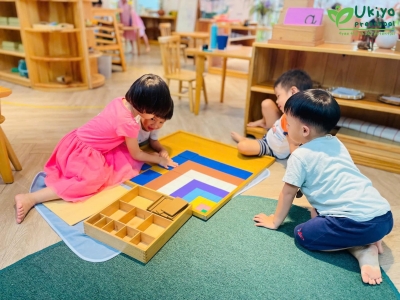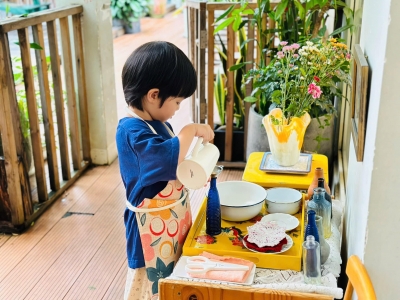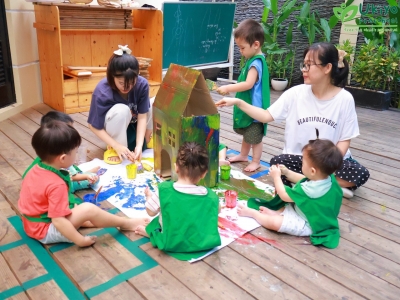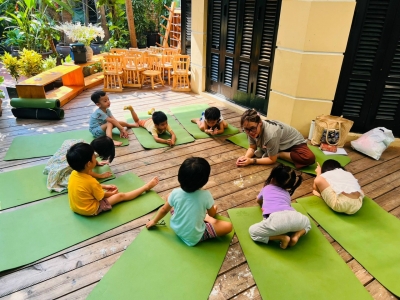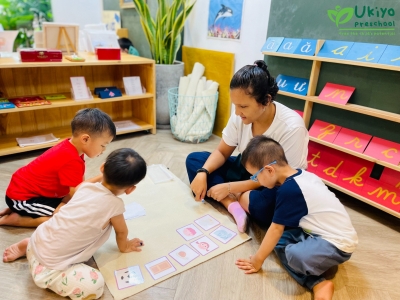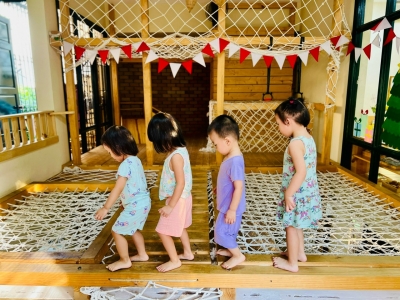Concentration– The Foundation for Holistic Human Development
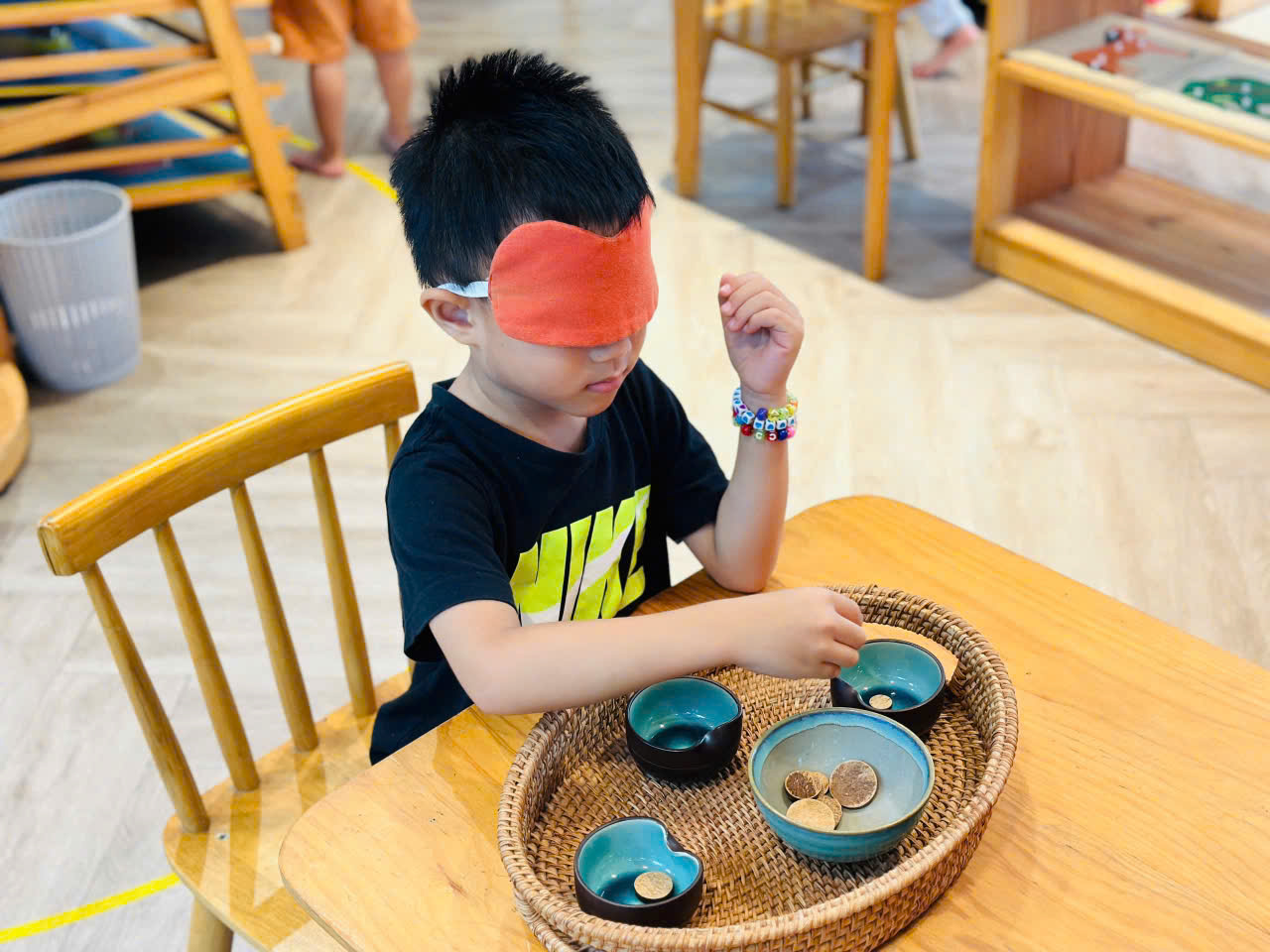
In the Montessori education system, concentration is considered the key to unlocking a child’s potential. Far beyond being merely a necessary skill, concentration supports the development of willpower, independence, and creativity. Through sensorial lessons, the three-hour work cycle, and respect for personal space, Montessori offers a natural and effective way to cultivate this ability.
Sensorial Lessons – The First Step to Developing Concentration
Sensorial lessons in Montessori are not just tools to enhance a child’s awareness of the world; they are also pathways to help children develop concentration by exploring their sensory abilities.
For example, working with color tablets is a classic lesson. Children are tasked with pairing color tablets or arranging them in gradients from light to dark. Initially, this requires them to carefully observe and distinguish subtle differences between shades. This activity not only hones their visual perception but also fosters patience and the ability to concentrate on a specific task for an extended period.
As children progress, sensorial lessons become more complex, such as comparing weights using baric tablets or differentiating sounds with sound cylinders. Each activity demands a high level of concentration to complete. These lessons lay the groundwork for transitioning from concrete activities to abstract thinking in later stages of development.
The Three-Hour Work Cycle – Building Sustained Concentration
A unique element of the Montessori environment is the three-hour uninterrupted work cycle. During this time, children are free to choose tasks from the materials they have been introduced to, practice independently, and solve problems on their own.
This principle helps children train their concentration while fostering independence and self-regulation. A child working without interruption learns to maintain motivation, patiently complete tasks, and experience the joy of overcoming challenges.
Respect for the Child’s Workspace
In a Montessori classroom, a child’s personal workspace is treated with utmost respect. This is a vital principle that allows children to maintain concentration without external distractions.
For instance, if a child is working with the red rods, arranging them from shortest to longest, and another child interrupts or moves a rod, the concentration is broken, and the task is disrupted. Therefore, Montessori environments are designed to ensure children can work in individual spaces without disturbance.
This respect not only nurtures concentration but also fosters a sense of responsibility for one’s work and respect for the space and work of others. This principle creates a calm and secure environment for children to explore the world.
Seamless Transitions Between Developmental Stages
One of the hallmarks of the Montessori method is its ability to connect lessons from simple to complex, from concrete to abstract, creating a natural pathway for the development of concentration.
For example, a 3-year-old may begin with lessons distinguishing textures, such as feeling rough and smooth boards. As they grow, they progress to sorting materials like metal, wood, or fabric, and eventually, identifying complex patterns through touch or sight.
This process helps children gradually enhance their concentration, from focusing on physical sensations to engaging in activities requiring logical thinking or memory. The continuity of lessons not only fosters intellectual growth but also strengthens concentration at every stage.
Concentration – The Key to Unlocking Human Potential
In a world increasingly filled with distractions, the ability to concentrate is not just an essential skill but a foundation for holistic development. The Montessori method demonstrates that concentration is not an innate talent but a skill that can be cultivated through the right educational environment.
Ask yourself: Can we apply principles of uninterrupted work, respect for personal space, and creating conditions for concentration in our daily lives? Could returning to simple, meaningful lessons—like how children learn through their senses—help us rediscover our lost ability to concentrate?
The answer may lie in starting with the basics. And just like children in a Montessori environment, concentration can open the door to realizing our greatest potential.
Others



